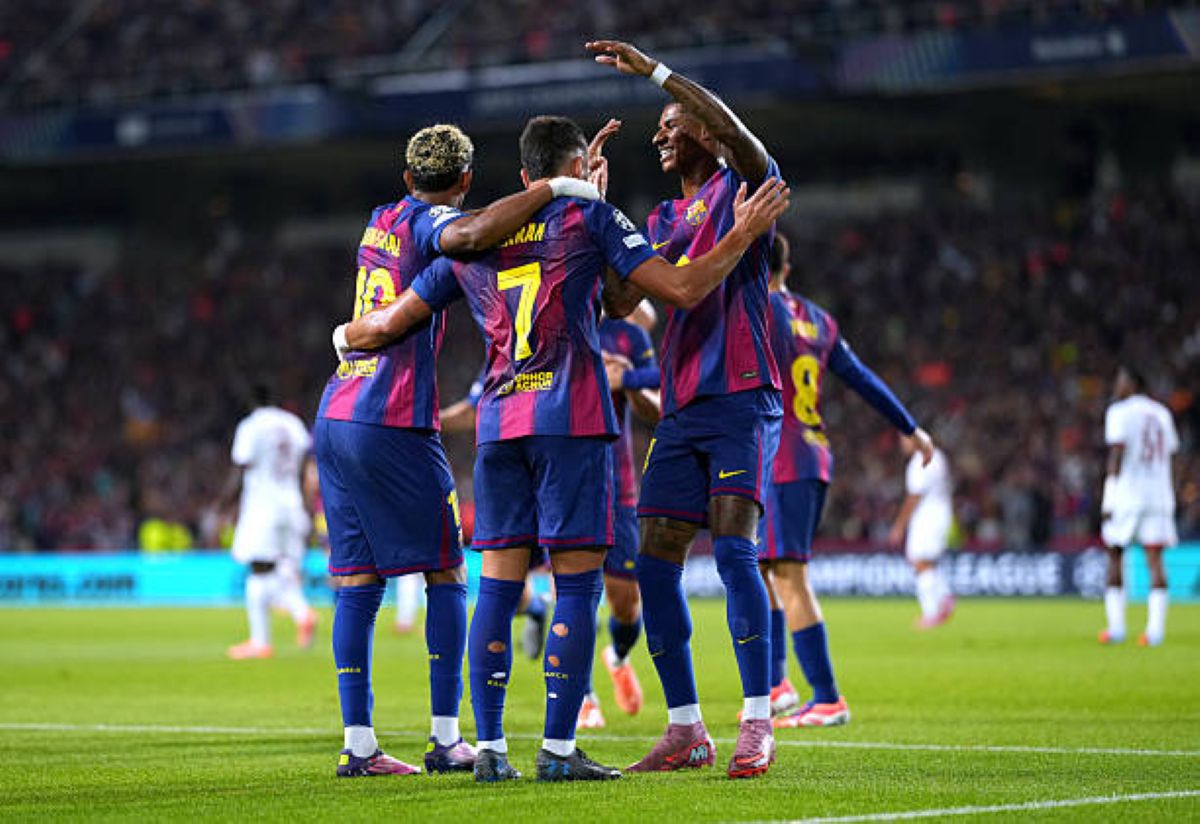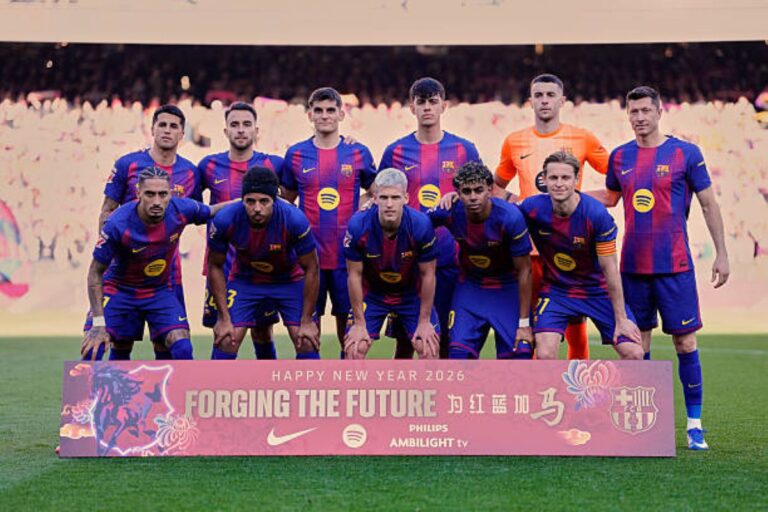FC Barcelona suffered a narrow 1-2 defeat against Paris Saint-Germain in a gripping UEFA Champions League clash at Montjuïc Stadium.
Ferran Torres gave Barcelona an early lead in the 19th minute with a calm finish following Lamine Yamal’s inventive play.
PSG responded in the 38th minute through Senny Mayulu, exploiting a defensive mistake.
Barcelona controlled possession and dictated the tempo, but PSG matched their intensity despite missing key players due to injuries.
Both sides created opportunities, yet solid defensive performances and goalkeeping ensured the points were shared.
However, Gonçalo Ramos sealed the win with a late strike in the 90th minute.
The result keeps the group competitive, underscoring Barcelona’s attacking potential and PSG’s grit under pressure.
The match was a showcase of tactical discipline and high energy from both teams.
Here are the 5 things we learned:
1. Attacking Fluidity and Coordination:
Barcelona’s attack showed promising collective movement, creating scoring opportunities through well-orchestrated plays across the pitch.
Their ability to move the ball from one side to the other was effective in breaking through PSG’s defense, suggesting a strong foundation for generating chances when maintaining this cohesion.
2. Midfield Control and Creativity:
The midfield dominated possession and dictated the tempo, particularly in the opening half-hour, with precise passing and movement that opened up PSG’s defense.
This control allowed Barcelona to create dangerous moments, highlighting their ability to orchestrate play and support the attack effectively.
3. Defensive Exposure to Counterattacks:
Barcelona’s high defensive line, while enabling their aggressive pressing, left them vulnerable to PSG’s quick counterattacks.
PSG exploited these gaps with rapid transitions, finding space behind the defense, which indicates a need for better balance to prevent being caught out by fast breaks.
4. Struggles Against PSG’s Pace:
PSG’s speed in attacking transitions posed a significant challenge, as their quick players capitalized on turnovers to create dangerous opportunities.
Barcelona’s defense was occasionally outpaced, underscoring the need for improved anticipation and positioning to counter such threats.
5. High Intensity but Missed Final Execution:
Barcelona maintained high intensity, especially in their pressing game, which forced PSG into errors.
However, their attack lacked precision in the final third, failing to convert pressure into clear shots on target early on, suggesting a need for sharper finishing to fully capitalize on their dominance.
Want to get the latest Barcelona news direct to your phone? Join our WhatsApp community by clicking here.




